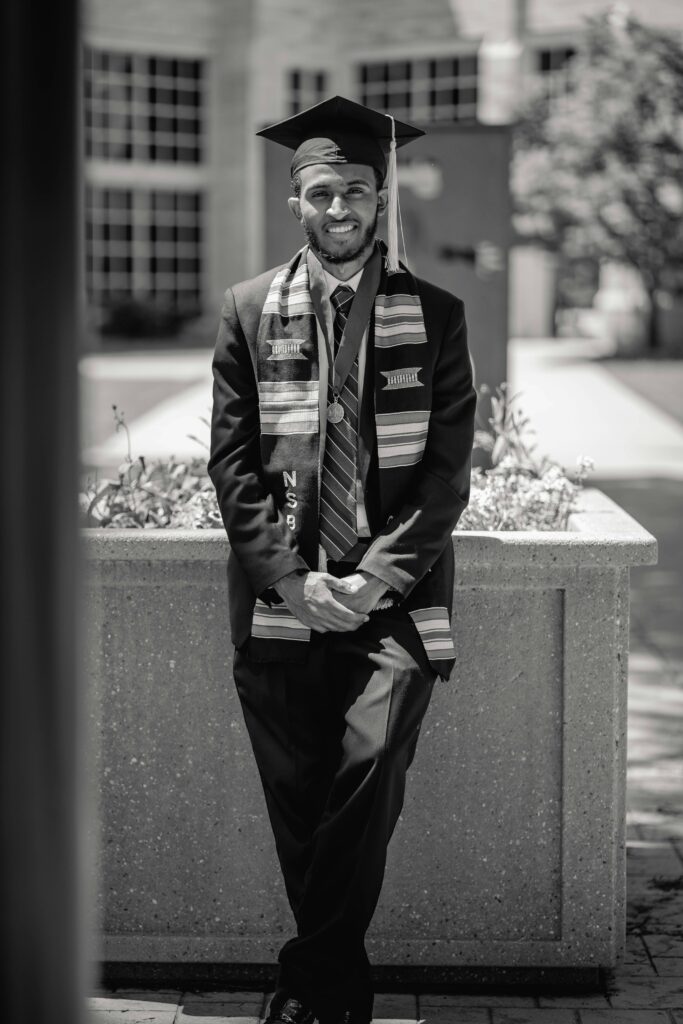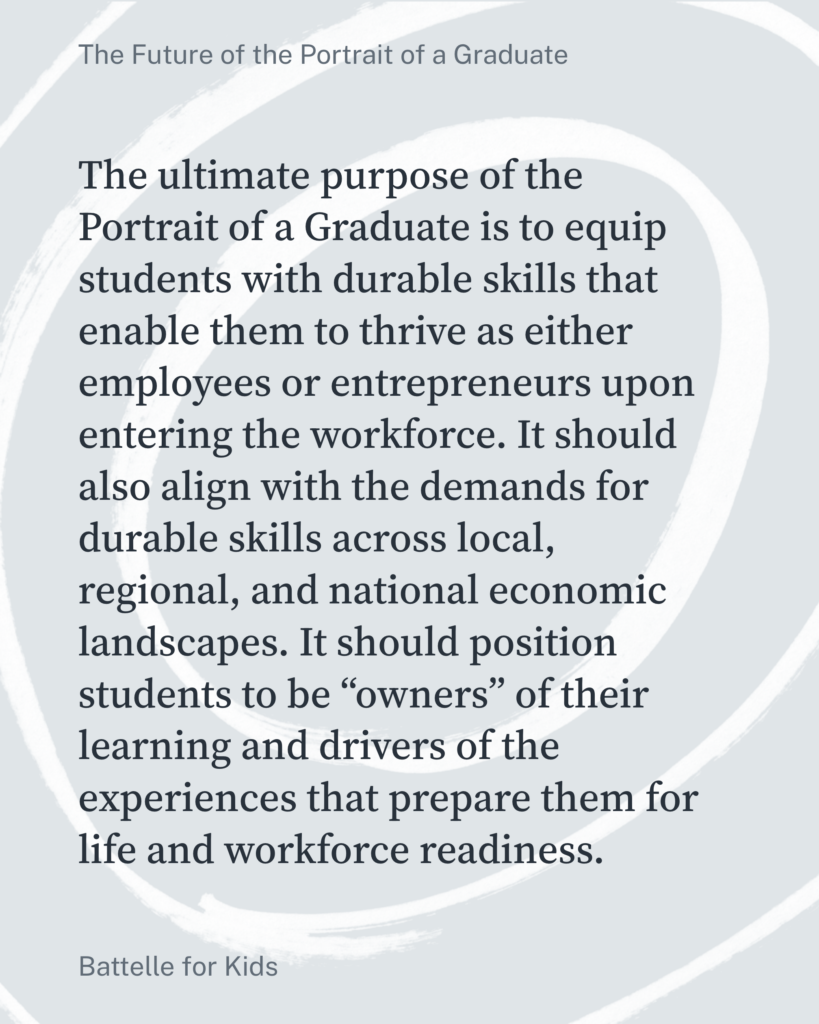
Graduate Profile. Portrait of a Graduate. Portrait of a Learner. Three different names for the same thing.
A Graduate Profile is a set of competencies that define the “enduring skills” schools want their students to have when they graduate.
Why is it important to have a graduate profile?
Battelle for Kids, a thought leader in the Portrait of a Graduate space, released a report this year called “The Future of the Portrait of a Graduate” and shared this reminder:

I’ve often heard the Portrait of a Graduate or Graduate Profile referred to as the “north star” for our work, which is appropriate. Everything we do should align with our Graduate Profile as we prepare students for a future we can’t predict, but we can give them the skills for success.
Focusing on those enduring skills prepares our students for those changes we can’t see. Remember when no one knew about generative AI tools like ChatGPT? And now people are using those tools with great success!
“I say this often in regard to generative AI, but it’s worth repeating: Prior to the arrival of ChatGPT in November 2022, very few people had any hands-on experience in interacting with and using large language models. The people who are using them productively today are not trained in the specifics of generative AI but in ways of thinking that allow one to make use of the tool as an aid to the human work, rather than outsourcing our thinking to something that does not actually think or reason.” – John Warner, Inside HigherED
Always look to the future. As Wizard’s Seventh Rule tells us, “Life is the future, not the past.”
The Eclectic Educator is a free resource for everyone passionate about education and creativity. If you enjoy the content and want to support the newsletter, consider becoming a paid subscriber. Your support helps keep the insights and inspiration coming!